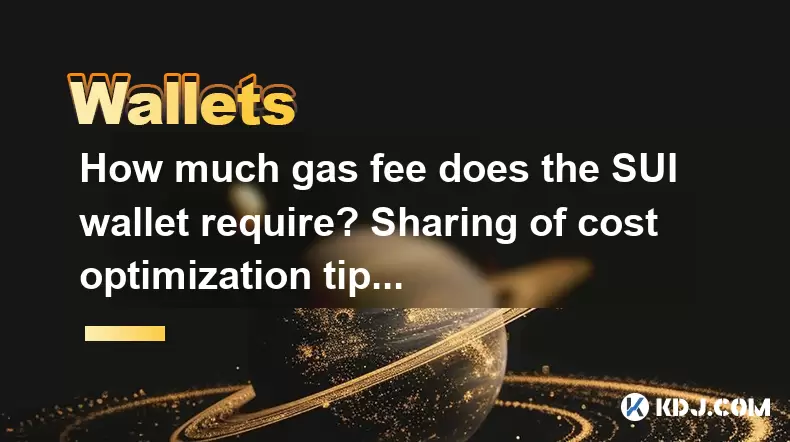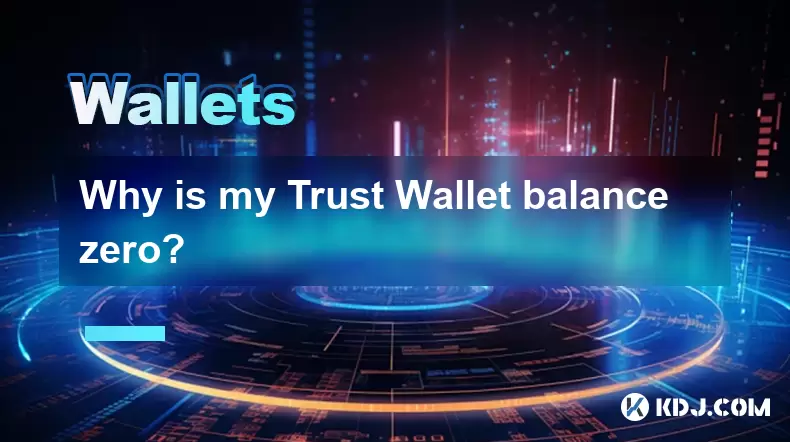-
 Bitcoin
Bitcoin $113900
-1.39% -
 Ethereum
Ethereum $3517
-4.15% -
 XRP
XRP $3.009
1.59% -
 Tether USDt
Tether USDt $0.9997
-0.04% -
 BNB
BNB $766.8
-1.41% -
 Solana
Solana $164.6
-2.38% -
 USDC
USDC $0.9998
-0.02% -
 TRON
TRON $0.3277
0.65% -
 Dogecoin
Dogecoin $0.2023
-1.67% -
 Cardano
Cardano $0.7246
0.05% -
 Hyperliquid
Hyperliquid $38.27
-4.77% -
 Sui
Sui $3.528
-0.52% -
 Stellar
Stellar $0.3890
-0.73% -
 Chainlink
Chainlink $16.16
-2.69% -
 Bitcoin Cash
Bitcoin Cash $539.9
-4.38% -
 Hedera
Hedera $0.2425
-2.00% -
 Avalanche
Avalanche $21.71
-0.97% -
 Toncoin
Toncoin $3.662
5.73% -
 Ethena USDe
Ethena USDe $1.000
-0.02% -
 UNUS SED LEO
UNUS SED LEO $8.964
0.35% -
 Litecoin
Litecoin $107.7
2.33% -
 Shiba Inu
Shiba Inu $0.00001223
-0.40% -
 Polkadot
Polkadot $3.617
-0.97% -
 Uniswap
Uniswap $9.052
-2.49% -
 Monero
Monero $295.1
-3.79% -
 Dai
Dai $0.9999
0.00% -
 Bitget Token
Bitget Token $4.315
-1.85% -
 Pepe
Pepe $0.00001060
0.11% -
 Cronos
Cronos $0.1342
-2.72% -
 Aave
Aave $256.0
-0.87%
How much gas fee does the SUI wallet require? Sharing of cost optimization tips
To optimize gas fees in the SUI wallet, time transactions during low congestion, batch them, and use gas price calculators for cost-effective transactions.
May 14, 2025 at 02:07 am

The SUI wallet, a popular choice among users in the cryptocurrency ecosystem, requires a certain amount of gas fees to process transactions on the SUI network. Understanding the specifics of these fees and learning how to optimize costs can significantly enhance your experience and efficiency when using the SUI wallet. In this article, we will delve into the details of the gas fees required by the SUI wallet and share valuable tips for optimizing these costs.
Understanding Gas Fees in the SUI Wallet
Gas fees are essential for the operation of any blockchain network, including SUI. These fees are used to compensate validators for the computational resources and storage required to process and validate transactions. In the SUI wallet, the gas fee is typically calculated based on the complexity and size of the transaction.
The base gas fee for a standard transaction on the SUI network is around 0.00001 SUI. However, this amount can vary depending on network congestion and the specific type of transaction you are executing. For instance, more complex transactions, such as smart contract interactions, may incur higher gas fees due to the additional computational resources required.
Factors Influencing Gas Fees
Several factors can influence the gas fees you pay when using the SUI wallet. Understanding these factors can help you anticipate and manage your costs more effectively.
Network Congestion: During periods of high network activity, gas fees can increase as users compete to have their transactions processed more quickly. Conversely, during quieter times, gas fees may be lower.
Transaction Complexity: Simple transactions, like sending SUI from one wallet to another, generally have lower gas fees. In contrast, more complex operations, such as executing a smart contract, can result in higher fees.
Gas Price: The gas price is the amount you are willing to pay per unit of gas. Setting a higher gas price can help prioritize your transaction, but it will also increase the total fee you pay.
How to Check Gas Fees in the SUI Wallet
To check the gas fees for a transaction in the SUI wallet, follow these steps:
- Open the SUI Wallet: Launch the SUI wallet application on your device.
- Initiate a Transaction: Navigate to the section where you want to perform the transaction, such as sending SUI or interacting with a smart contract.
- Review Transaction Details: Before confirming the transaction, you will see a summary of the transaction details, including the estimated gas fee.
- Adjust Gas Price (Optional): If you want to adjust the gas price to either speed up the transaction or reduce costs, you can do so in the transaction settings. Be aware that changing the gas price can affect how quickly your transaction is processed.
Tips for Optimizing Gas Fees in the SUI Wallet
Optimizing gas fees can help you save money and improve your overall experience with the SUI wallet. Here are some practical tips to consider:
Time Your Transactions: Monitor the network's activity and try to execute transactions during periods of low congestion. This can help you secure lower gas fees.
Batch Transactions: If you need to perform multiple transactions, consider batching them into a single transaction. This can reduce the total gas fees compared to executing each transaction separately.
Use Gas Price Calculators: Utilize online gas price calculators to estimate the optimal gas price for your transactions. This can help you find the right balance between cost and transaction speed.
Leverage Gas Fee Estimators: Some wallets and platforms offer gas fee estimators that can provide real-time suggestions on the best gas price to use. These tools can be invaluable for optimizing your costs.
Advanced Techniques for Gas Fee Optimization
For more experienced users, there are advanced techniques that can further optimize gas fees in the SUI wallet:
Custom Gas Prices: Instead of using the default gas price suggested by the wallet, you can set a custom gas price. This requires a good understanding of the current network conditions and the trade-offs between speed and cost.
Gas Token Strategies: Some users employ strategies involving gas tokens, which can be used to pay for gas fees at a lower cost. These strategies are more complex and require a deeper understanding of the SUI network and its ecosystem.
Smart Contract Optimization: If you are interacting with smart contracts, optimizing the code can reduce the gas required for execution. This involves writing efficient code and minimizing unnecessary operations.
Monitoring and Adjusting Gas Fees
Regularly monitoring and adjusting your gas fees can help you stay on top of your costs and ensure you are getting the best value from your transactions. Here are some steps to follow:
Use Gas Fee Tracking Tools: There are various tools and platforms available that track gas fees across different blockchains, including SUI. Use these tools to stay informed about current gas prices and trends.
Adjust Based on Network Conditions: If you notice that gas fees are consistently high, consider adjusting your strategy. This might involve waiting for a better time to execute transactions or using the advanced techniques mentioned earlier.
Review Transaction History: Periodically review your transaction history to identify patterns in gas fees. This can help you make more informed decisions about when and how to optimize your transactions.
Frequently Asked Questions
Q: Can I set a maximum gas fee for transactions in the SUI wallet?
A: Yes, the SUI wallet allows you to set a maximum gas fee for your transactions. This feature can help you control costs and avoid unexpected high fees. To set a maximum gas fee, go to the transaction settings and enter the desired amount before confirming the transaction.
Q: How do gas fees in the SUI wallet compare to other blockchain networks?
A: Gas fees in the SUI wallet are generally competitive with other blockchain networks. However, the exact fees can vary based on network conditions and the type of transaction. It's a good idea to compare current gas fees across different networks to make informed decisions.
Q: Are there any risks associated with optimizing gas fees in the SUI wallet?
A: Optimizing gas fees can involve some risks, particularly if you set the gas price too low, which could result in delayed or failed transactions. Always ensure you have a good understanding of the current network conditions and the potential trade-offs before adjusting gas fees.
Q: Can I refund gas fees if a transaction fails in the SUI wallet?
A: In most cases, gas fees are non-refundable, even if a transaction fails. The gas fee is used to compensate validators for the resources they expend in processing the transaction, so it is not returned if the transaction does not complete successfully.
Disclaimer:info@kdj.com
The information provided is not trading advice. kdj.com does not assume any responsibility for any investments made based on the information provided in this article. Cryptocurrencies are highly volatile and it is highly recommended that you invest with caution after thorough research!
If you believe that the content used on this website infringes your copyright, please contact us immediately (info@kdj.com) and we will delete it promptly.
- Solana, Axiom Exchange, and Revenue: Navigating the Future of DeFi
- 2025-08-02 12:50:12
- Cardano (ADA) and Altcoin Gains: Navigating the Crypto Landscape
- 2025-08-02 12:55:11
- Bitcoin's Bearish Momentum: Fakeout or the Real Deal?
- 2025-08-02 12:30:12
- Ethereum's Rocky Climb: Analysts Eye New ATH Despite Recent Dip
- 2025-08-02 10:30:11
- Ethereum Price, ETF Inflows, and ETH Tokens: What's Driving the Market?
- 2025-08-02 10:50:12
- Ethereum, ADA, and Price Support: What's Next for These Crypto Titans?
- 2025-08-02 10:50:12
Related knowledge

What is a watch-only wallet in Trust Wallet?
Aug 02,2025 at 03:36am
Understanding the Concept of a Watch-Only WalletA watch-only wallet in Trust Wallet allows users to monitor a cryptocurrency address without having ac...

How to switch between networks in Trust Wallet?
Aug 02,2025 at 12:36pm
Understanding Network Switching in Trust WalletSwitching between networks in Trust Wallet allows users to manage assets across different blockchains s...

How to check my full transaction history on Trust Wallet?
Aug 02,2025 at 09:24am
Understanding Transaction History in Trust WalletTrust Wallet is a widely used non-custodial cryptocurrency wallet that supports a broad range of bloc...

Why is my Trust Wallet balance zero?
Aug 02,2025 at 03:49am
Understanding Trust Wallet Balance Display IssuesIf you're seeing a zero balance in your Trust Wallet despite knowing you've previously received or se...

What is the difference between secret phrase and private key in Trust Wallet?
Aug 02,2025 at 09:49am
Understanding the Role of a Secret Phrase in Trust WalletThe secret phrase, also known as a recovery phrase or seed phrase, is a sequence of 12 or 24 ...

Why is my Trust Wallet balance not showing?
Aug 02,2025 at 06:01am
Understanding Trust Wallet Balance Display IssuesMany users encounter the issue where their Trust Wallet balance is not showing despite having previou...

What is a watch-only wallet in Trust Wallet?
Aug 02,2025 at 03:36am
Understanding the Concept of a Watch-Only WalletA watch-only wallet in Trust Wallet allows users to monitor a cryptocurrency address without having ac...

How to switch between networks in Trust Wallet?
Aug 02,2025 at 12:36pm
Understanding Network Switching in Trust WalletSwitching between networks in Trust Wallet allows users to manage assets across different blockchains s...

How to check my full transaction history on Trust Wallet?
Aug 02,2025 at 09:24am
Understanding Transaction History in Trust WalletTrust Wallet is a widely used non-custodial cryptocurrency wallet that supports a broad range of bloc...

Why is my Trust Wallet balance zero?
Aug 02,2025 at 03:49am
Understanding Trust Wallet Balance Display IssuesIf you're seeing a zero balance in your Trust Wallet despite knowing you've previously received or se...

What is the difference between secret phrase and private key in Trust Wallet?
Aug 02,2025 at 09:49am
Understanding the Role of a Secret Phrase in Trust WalletThe secret phrase, also known as a recovery phrase or seed phrase, is a sequence of 12 or 24 ...

Why is my Trust Wallet balance not showing?
Aug 02,2025 at 06:01am
Understanding Trust Wallet Balance Display IssuesMany users encounter the issue where their Trust Wallet balance is not showing despite having previou...
See all articles

























































































